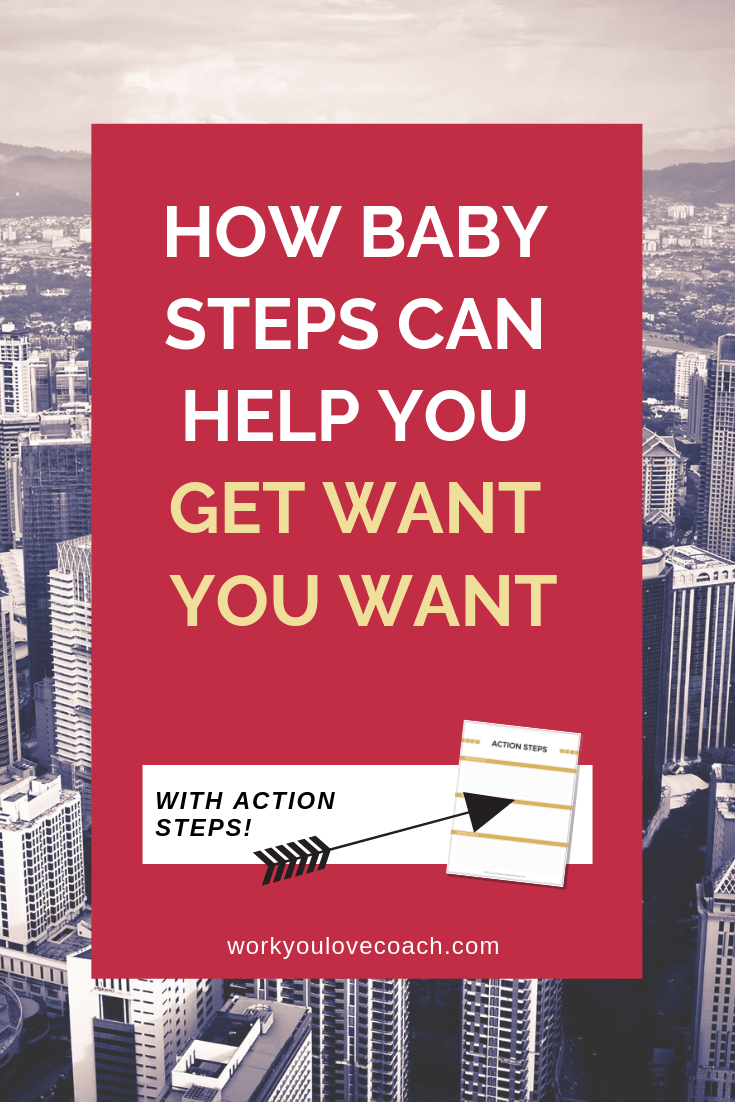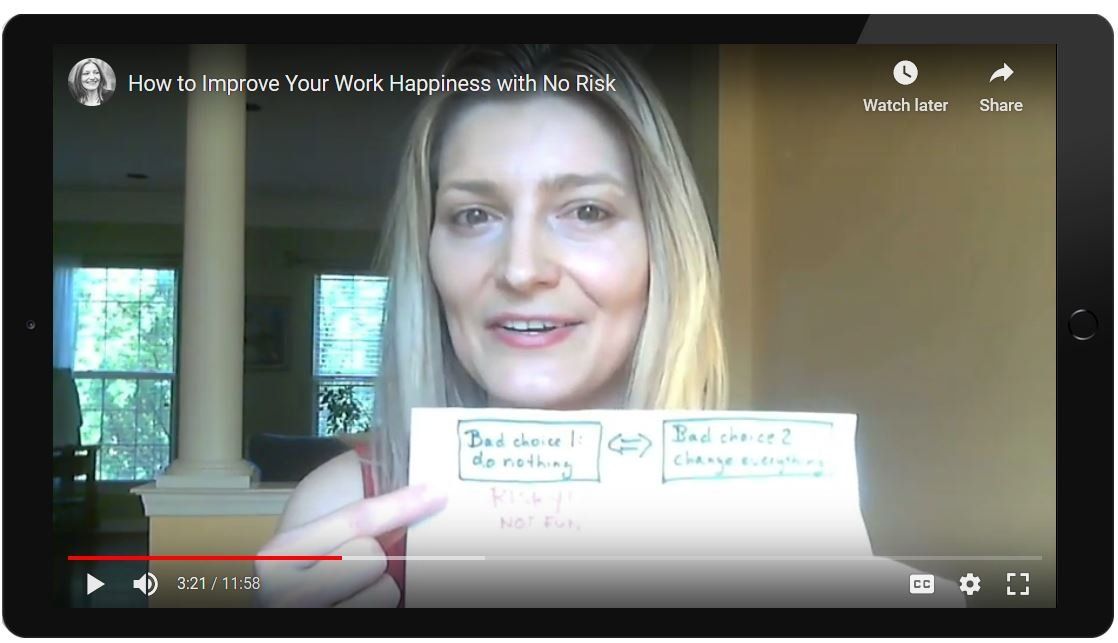Small Changes, Big Difference: How Baby Steps Can Help You Get Want You Want
Today, I’d like to encourage you to explore how small changes can make a big difference in all areas of your life.
Her vision for law in 2050 includes: “The legal system works for everyone. There are no more lawyer jokes. They're not funny anymore.” Imagine what would have to happen to make that a reality. Consider how much it would take to a) make the legal system work for everyone, and b) make lawyer jokes obsolete.
It's a huge vision, right?
So are most things that people feel passionate about. This brings us to the need for balance. You might think that a big vision requires big steps and a huge expenditure of energy. But, in reality, it is more likely that a huge goal requires many small habits and actions that gradually move you in the right direction.
As the saying goes, Rome wasn't build in a day.
Do small changes really make a big difference?
As executive coach Dr. Brian Whetten likes to say: “The bigger the vision, the smaller the steps need to be.” Unless you balance the grandiosity of your big goals with the humility of small, consistent steps, you will likely find yourself in acute overwhelm.
Of course, in our culture, we tend to underestimate the power of small steps. Brad Stulberg accurately diagnoses
what happens when people do that:
“Here’s the thing no one tells you about the saying ‘go big or go home’: Most people who go big swiftly end up at home.”
With all that being said, let's move on to...
6 powerful, small changes to your everyday habits
Let's first look at small changes to your regular habits that can help you be more successful:
- Go to bed a bit earlier as this will either allow you to get more sleep or help you get up earlier.
- Focus on your priorities as these are the action items that give you the majority of results. By dividing your work into priorities and mere to-dos, you can get more done with less work because you focus on high-leverage activities.
- Stop multitasking as this makes you more unfocused and unproductive. When you
focus on one thing, you can give it your full attention. This also makes you feel less overwhelmed and stressed.
- If at all possible, only check your emails a few times per day (not constantly) as this will improve your concentration and make it easier to enter a state of flow. Also, put your phone on airplane mode as often as possible.
- Design your environment for success by making it harder to fall into negative habits. For instance, you can either resist junk food every day... or you can resist it once a week during a shopping trip. The latter approach is much easier.
- Meditation is one of the most powerful habits I know. If you
take just a few minutes to meditate in the morning, it can help you staying more mindful during the whole day.
- Adopt a patient attitude while taking the actions that can help you move ahead.
While these habits are useful for everyone, you also have action items that are unique to you and your goals. Let's explore how you can discover them:
Find out which steps to take next
Grab a pen and paper. 📝Then, take a moment to go through the following process.
(If you want to get the most out of this or if you're afraid of getting
stuck, get the "Taking Action Worksheets" and begin by filling those
out.)
- What's one goal that you want to accomplish?
Pick something that's concrete enough for you to know when it's done. For instance: "I want to get the website for my new business ready. I know that I've accomplished that goal once I've felt comfortable enough with the result to share it with at least 10 people." - What needs to be done to accomplish that goal?
This is probably a long laundry list. Simply add every necessary task that you can think of at the moment. For instance: "I need to write copy for the home page. I need to optimize my existing pages for SEO. I need to add more blog posts. I need to add an opt-in form." - What is one small step you can take today towards accomplishing that goal?
Choose something that you can realistically accomplish in one day. If something is realistic or not depends on your own experience with the task at hand. For instance: "I could add one more blog post to the website. I've written so many blog posts before, that's totally doable for me." - What's the very first thing you need to do to accomplish that small step for today?
This task should be so small that it feels ridiculous to you to write it down. Make sure that this feels entirely doable to you, such as opening your email program (so you can write an email), finding your phone (so you can make a phone call) or finding a sheet of paper (so you can take notes). For instance: "The very first thing I need to do to add one more blog post to my website is to turn on my laptop. Turning on my laptop feels entirely doable to me."
- Begin by doing the very first thing
Takeaway 💡
Going forward, you can also use the process I shared above every morning to make sure you focus on the right things.
P.S.: Want more help to improve your life?
If so, I invite you to check out my 1-on-1 coaching.






